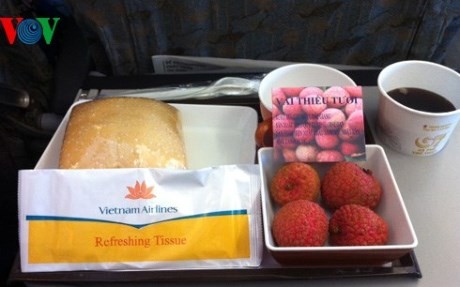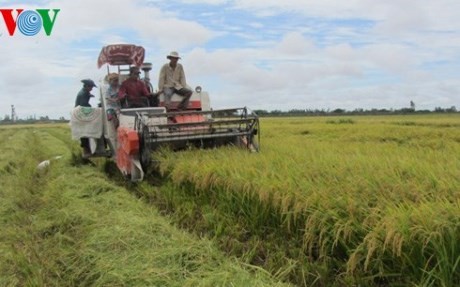(VOVworld) – With advantages in rice, fruits, and aquatic products, the Mekong River Delta is a key agricultural center of Vietnam and the region. In addition to these strong points, the delta’s agricultural production is challenging competition regulations when Vietnam joins the TPP.
 |
| The Mekong River Delta’s fruits should be promoted more widely toward developing trademarks in the international market like the Luc Ngan litchi brand name in the north. |
Eight years after Vietnam participated in the World Trade Organization, in the early days many domestic enterprises hadn’t made careful preparations.
Now Vietnam is in a new integration process, having signed many free trade agreements with economic powers. As a result, an improper preparation will likely cause great losses, according to senior economist Pham Chi Lan.
She noted that “by the end of this year when the ASEAN Economic Community is established, Vietnam will likely complete a series of trade deals with various countries following the completion of free trade agreements with the Republic of Korea, the EuroAsia, the TPP, and the EU. In that case, Vietnam will have a total of 57 FTAs with other nations under which goods from these countries will enjoy preferential tax treatment. Therefore we must think how far Vietnamese businesses and sectors can compete with them.”
 |
| The region is encouraged to speed up the mechanization of agricultural production. |
Another emergency mission for the region is to speed up the mechanization of agriculture. Economists at a recent forum in Can Tho City on farm produce consumption set against the context of integration, agreed that the Mekong River Delta plays a major role in Vietnam’s economic integration which results in more challenges for the agricultural sector and increasing difficulties in farm produce consumption.
Doctor Nguyen Sy Dung, deputy head of the National Assembly’s office, said that“60% of Vietnamese people are involved in agricultural production while the figure is only 3% in developed countries. Thus their cost price will be lower. The question is when Vietnam opens its market, how far our goods will compete? Our point is not simply about consumption but how to link Vietnamese products with the global value chain. This will help us to understand how we should produce the amount of goods relevant to our needs.”
Economist Vo Hung Dung made it clearer that “Vietnam has advantages in agriculture but we can’t continue to rely on output and low-price competition. We should fully tap the rarely-explored agricultural advantages.”
The immediate task for Vietnam is to raise public awareness about both the challenges and advantages in Vietnam’s membership of the TPP and other global trade deals, towards outlining long-term and sustainable development strategies for Vietnam’s agricultural industry.